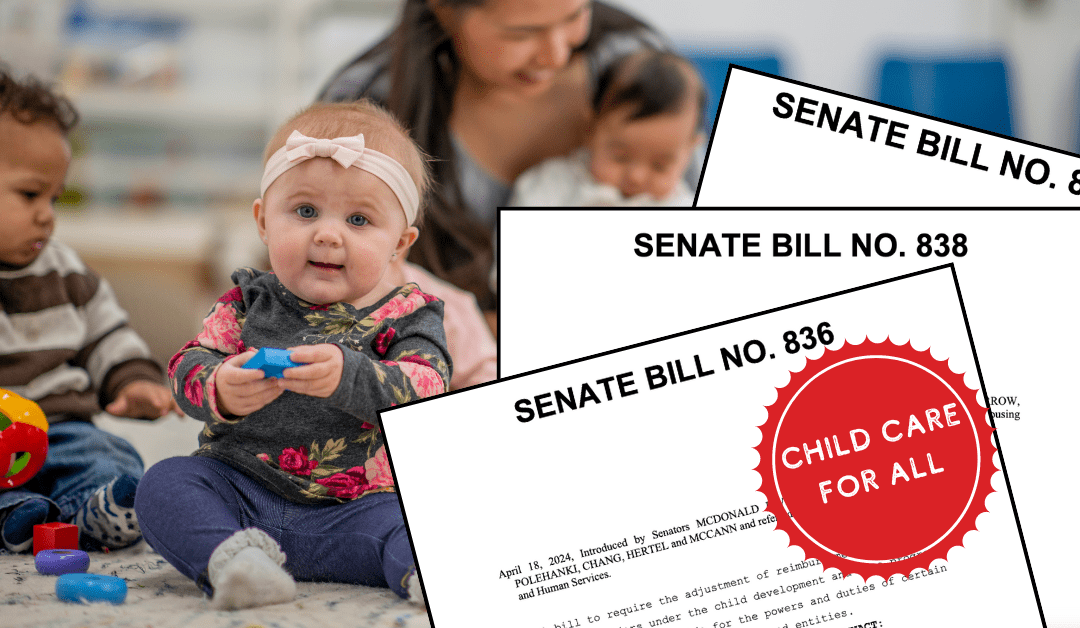
Rep. Kyra Harris Bolden will be taking a seat at the Michigan Supreme Court come January. Photo: Kyra Harris Bolden
“So I, from my lived experiences, may be able to see something that others may not see, or just see it in a different way that others may not have seen in a particular situation. That’s how you catch errors. That’s how you catch discrimination. That’s how you catch injustice.”
MICHIGAN—Rep. Kyra Harris Bolden (D-Southfield) was sitting in the Michigan Hall of Justice when she joined The ‘Gander for a video call. It was fitting, since the Hall is where the state Supreme Court hears oral arguments—and come January, Bolden will be taking a seat at the bench. In late November, Bolden made history by becoming the first Black woman to be appointed to the Michigan Supreme Court, after Gov. Gretchen Whitmer tapped her to fill retiring Justice Bridget McCormack’s spot.
The Michigan Supreme Court is the highest court in the state, and in the past year alone its seven justices have made significant decisions for Michiganders. For example, they ruled that two citizen initiatives, which had gathered the appropriate number of signatures to go on the midterm election ballots, should be allowed to progress to election ballots after they were blocked by Republican partisan efforts on the Board of Canvassers.
As politics continue to seep into historically apolitical boards, Bolden said we’ve already seen how the state Supreme Court can act as a balance for hyper-partisan moves in lower levels of government.
“As I sit in the Hall of Justice and have been welcomed by the justices—all of them—with open arms,” she said, “I think it’s a really good group of people that will listen to each other—won’t agree all the time—but will really listen to each other’s perspectives.”
Bolden said she brings a new lived experience to the bench, having been a member of the Michigan House of Representatives for the 35th district—which is primarily the Southfield area. She’ll step down from her legislative post in January, when she’s sworn in at the Court. Sitting in the Hall of Justice, Bolden said she’d been listening to oral arguments on a case that had the justices discussing whether the state Legislature had considered a certain situation when making a law.
“I think that really just underscores the importance of having someone in the room that knows how the Legislature thinks, because it’s very important to statutory interpretation, to know how laws are made, the thought process that goes into it, the thought processes that don’t go into it,” she said. “All in making sure that you are upholding the rule of law and making the best decisions possible.”
“We All Look Through Different Lenses”
The Michigan Supreme Court was created in 1835. The first Black justice was Otis Milton Smith, who joined the Court in 1922—a century ago. Since that time, the Court has had four more Black justices, out of 115 total justices.
READ MORE: What does the Michigan Supreme Court do?
“The composition of our courts should reflect the population its rulings impact,” said Michigan Attorney General Dana Nessel, when Gov. Whitmer announced Bolden’s appointment. “I commend the Governor for selecting Kyra Bolden to serve on our state’s highest court.”
Nessel’s reaction begs the question: Why did it take so long for a Black woman to make it to Michigan’s big bench?
The answer comes back to structural racism—in other words, the ways that public policies, institutions, norms, and other parts of society hold back the progress of certain racial groups. Here’s an example of how structural racism has led to Kyra Bolden making history in Michigan: Only about 5% of attorneys across the country are Black, according to the American Bar Association, and only 38% of attorneys are women.
“So you’re already working with a small pool of folks,” Bolden said. “And there’s other barriers. There are barriers to running a statewide campaign—name recognition is huge. A lot of people don’t have the benefit of having a family legacy or coming from wealth, particularly Black women.”
Studies have shown that Black women in America hold 90% less wealth than white men. Prior to being appointed, Bolden ran for one of two incumbent seats on the state Supreme Court, and lost to the incumbent justices (both white men). Her campaign cost about $1 million. Incumbent Justice Brian Zahra, by contrast, spent $1.3 million to hang on to his seat.
And Bolden even had an advantage when she kicked off her campaign—she was already a sitting state Representative, with name recognition and a donor list that most people don’t have.
“That’s why it’s so important to finally now have this representation,” Bolden said. “But it is 2022 and people are excited and I am excited as well, but it’s just also absolutely unacceptable that in this day and age, that this representation has not been seen on our court—ever.”
Accurate representation on the Court helps build trust in the justice system among underrepresented communities, and also brings a different perspective—because justices from different backgrounds often rule differently from one another.
For example, white federal district court judges often place more conditions on pre-trial release compared to Black judges.
“We all look through different lenses, and so while we’re looking at the law, you’re bringing your lived experiences and your perceptions of things to the table,” Bolden said. “So I, from my lived experiences, may be able to see something that others may not see, or just see it in a different way that others may not have seen in a particular situation. That’s how you catch errors. That’s how you catch discrimination. That’s how you catch injustice.”
Bolden said she understands the weight of the issues that will be placed in front of her, along with her six fellow justices.
“It is incredibly important that the justices on the Michigan Supreme Court believe in equal justice under the law, that they understand the impact of their decisions and make very thoughtful, well-reasoned decisions for Michiganders,” she said. “…We need to make sure that this is a non-partisan body, that we do have conversations with each other to understand each other’s perspectives because, you don’t know—the thing that you might share with your perspective might make the difference in a case. So I hope to be that type of justice.”
Politics

SEIU workers ahead of NFL Draft: We are ‘the backbone of Detroit’
BY KEN COLEMAN, MICHIGAN ADVANCE MICHIGAN—A day ahead of the National Football League annual draft being held in Detroit, Service Employees...

Investigator says Trump, allies were uncharged co-conspirators in plot to overturn Michigan election
DETROIT—A state investigator testified Wednesday that he considers former President Donald Trump and his White House chief of staff to be uncharged...

Michigan Dems introduce ‘Child Care for All’ legislation to lower costs for families
Lawmakers say Michigan is facing a ‘child care crisis.’ But a series of bills introduced this month would help to make child care (much) more...
Local News

The 10 best burger joints in and around Lansing
Warning: Do not read this list if you missed lunch or you will find yourself hopping in the car to drive to these best burger joints in Lansing. ...

10 unique wedding venues in Michigan to suit every kind of couple
From a distillery in Detroit to a summer camp, we’ve rounded up some of Michigan’s most unique wedding venues. Of all the elements you need to...





